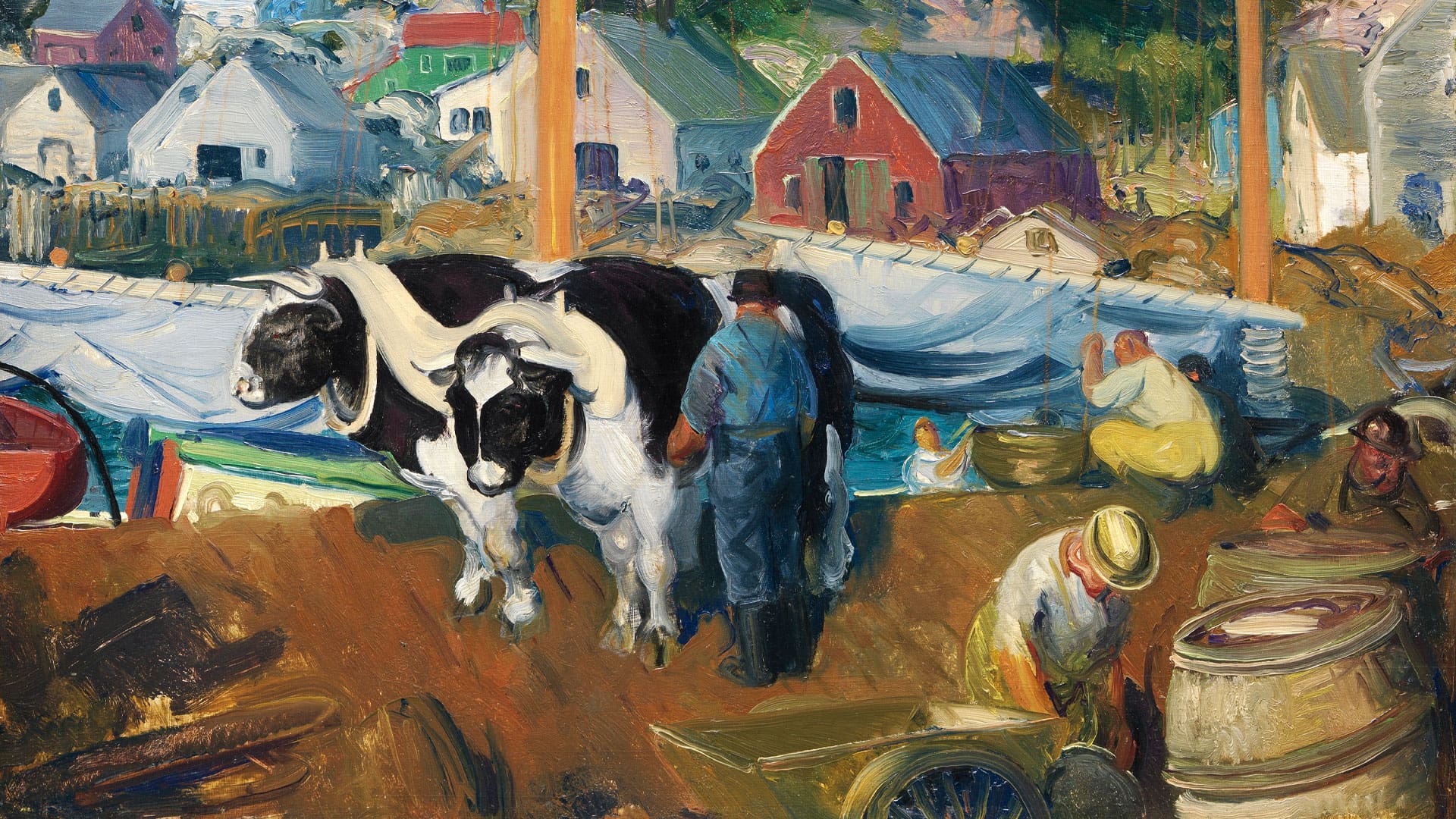A
Admit it, if only quietly and to yourself. You have, in those quieter moments of your life, daydreamed about what people will say of you at your funeral. Or, at least, what you would like them to say.
Chances are, you don’t want the priest or next of kin to utter the words, “She managed her portfolio of shares with extreme diligence,” or “He spent long hours in the office but did at least achieve a bit of work-life balance with some amazing holidays in the Caribbean.” You want to be remembered for what matters. We all do.
Death mercilessly cuts through the moral fog of living. Few people want to be memorialized for the stuff they had or the leisure they enjoyed, in spite of the fact that we spend so much of our time on earth pursuing these things and then talking about then. We want our funeral eulogy to be positive—obviously—but positive about the right things.
There are lots of “right things” and they don’t all necessarily align. I am told that one of the most popular songs to be played at funerals is Frank Sinatra’s “My Way,” presumably lauding a determined individualism to which some people aspire but others judge selfish. Other people want to be commemorated for their moral commitment (the deceased was a passionate environmentalist, a tireless social activist, etc.) or their talents and creativity (a brilliant artist, an inspired musician, etc.).
But surely, even for the most determined individualists among us, the characteristic for which we most want to be celebrated is our being-in-relationship. We were a loving mum, a supportive dad, a caring husband, a kind sister. Indeed, the way in which such epithets are literally chiselled onto gravestones, usually just underneath dates of birth and death, indicates that our relationships are not something we enter into so much as something we are—as basic to our existence as when we were born or when we die. To adopt the title of a famous book by theologian John Zizioulas, our being is communion.
And yet the kind of relationships also matters. After all, “we remember the deceased because he was a father” is hardly heroic praise, amounting to little more than congratulating someone for the fact they managed to reproduce. It’s not the fact of our relational existence that matters to us so much as its quality: a loving mum, a supportive dad, a caring husband, a kind sister. We want to be remembered for the charity and sympathy with which we lived in communion. As the poet Philip Larkin put it, “What will survive of us is love.”
⎯⎯
Larkin didn’t quite believe this. He was an atheist, albeit a Christian-flavoured one, and this line makes it clear that, for him at least, this was an “almost-instinct” that was “almost true.” Those who see the world through the lens of Christianity believe it really is true. God is love. We are made in his image. We smear that image. He came to clear it up. It’s up to us accept or reject his efforts.
All true. But it tends to leave the central feature of the whole scheme a bit opaque. Famously, whereas New Testament Greek has four words for love, English has a measly one, and while it is quite easy to define and distinguish agape, eros, philia, and storge into the vernacular, we are still left with the interminable, slippery struggle of meanings.
We are made in his image. We smear that image. He came to clear it up. It’s up to us accept or reject his efforts.
Having once thought he has solved all the problems of philosophy, Ludwig Wittgenstein completely changed his mind and spent his final twenty years pondering what words meant. He came to the conclusion, articulated in the posthumous Philosophical Investigations, that meaning lay in usage. “The speaking of language,” he said, “is part of an activity, or of a form of life.” This meant that “the meaning of a name is sometimes explained by pointing to its bearer.” If you want to know what a word means, “Don’t think, but look!” Or, as the 1980s rock band Foreigner sang, channelling their inner Wittgenstein, if you want to know what love is, you need someone to show you.
St. John would have agreed. “This is how we know what love is,” he wrote in his first letter. “Jesus Christ laid down his life for us” (1 John 3:16 NIV). Neither John nor the other New Testament writers had quite the same disregard for thinking their way to meaning as Wittgenstein did. They were not averse to defining love, and St. Paul hit a particularly rich seam when he tried to do so for the church in Corinth. But they are nonetheless in agreement with the great philosopher that the meaning of love is only to be understood truly by looking. “The kingdom of God,” Paul says earlier in 1 Corinthians, “is not a matter of talk but of power,” specifically the paradoxical power he has been talking about, that is witnessed in the cross.
John’s words are particularly helpful, however, in that they tell us what to look for: “Jesus Christ laid down his life for us.” It is in Jesus’s gift of himself that we see love in its clearest form. Love is sacrifice. Love is gift. As the disciples head up to Jerusalem, and James and John ask to receive honour from their master rather than give it, Jesus tells them, “The Son of Man came not to be served but to serve, and to give his life as a ransom for many” (Mark 10:45). The destination, with its horrific termination, comes into view. The life of service, the life of gift, concludes with the final, supreme, and complete act of gift. To give is to love and to love is to give. God is gift.
⎯⎯
Making the connection between love and gift, and between both and our own existence and purpose as humans, is liberating.
Admittedly, it is hubristic to imagine that any one single idea captures the variegated breadth of Scripture, theology, or indeed human nature. There is more to Christianity than that gift alone. Nevertheless, it is a powerful, consistent, significant, and frequent theme within Scripture and tradition, just as long we are attentive to it.
God himself is mutual gift.
The inner life of the Triune God is of ceaseless, free, and complete gift; the persons of the Trinity are distinguished from one another only by their relationship to one another. In the words of John Paul II, the intimate life of God “becomes totally gift, an exchange of mutual love between the divine Persons.”
Creation is not self-existent but contingent on the Creator. It is entrusted to humans as gift—we have no final right or ownership over it—so that we might “work it and keep it” (Genesis 2:15). God’s choice of his people is a gift and grace, not something that they deserve (as they repeatedly need to be reminded). The law is a gift to Israel, in spite of what later Christian traditions turned it into. The highest meaning of that life is found in giving it away. “Greater love has no one than this, that someone should lay down his life for his friends” (John 15:13). The cross, as noted, is not only the supreme gift of God himself but also a template for what it should mean to be human. The Eucharist is the constant reminder and enactment of that gift. There is no part of the salvation drama that is not amenable to the idea of gift.
Crucially, however, the basic premise of life-as-gift also resonates with people who have little or no contact with the Christian story. This is important. Some will claim that it is only because we in the West stand in the fading afterglow of Christendom that we value such self-sacrifice. There may be some truth in that. As David Dusenbury says at the start of his brilliant book The Innocence of Pontius Pilate, “At the heart of every European city [and indeed town and village] lies a mystery: the figure of the cross.” That fact should not be ignored. Those growing up in the lingering afterglow may still be unduly sensitised to the significance of gift.
Nevertheless, in much the same way as you will hear similar funeral addresses wherever you go in the world, the idea of sacrifice, of giving ourselves for others, lies deep and primal in the human soul. It is almost as if our particular species is created (or evolved, it makes precious little difference in this case) to be in relationship; that wherever we go in the world those relationships end up fractured and broken; and that somehow deep down in our hearts we recognize that the only way of maintaining and repairing them is through an act of self-sacrifice, of gift.
⎯⎯
Social science and psychology have shown, with about as much finality as is possible in those protean disciplines, that nothing is as positively correlated to human well-being as the quality of our relationships. According to the evolutionary psychologist Robin Dunbar, the only thing more significantly linked to good health than friendship is giving up smoking. And few things give us a bigger high or a more robust sense of our own worth than helping others—giving something of our time, energy, resources, or knowledge to another.
This all sounds great, but we also know how very hard it is. The gift of self may be what we were made for, but it hardly comes naturally to us, and it is all too easy for it to remain in the realm of “mere theology,” a nice idea to discuss round the seminar table. St. Paul wrestled with this for decades, and there is an obscure verse at the back end of his letter to the Ephesians that offers an example of how we can turn this vision of human-as-gift to practical ends.
In Ephesians 4:28, Paul writes, “Let the thief no longer steal, but rather let him labor, doing honest work with his own hands, so that he may have something to share with anyone in need.” It is a verse dense with theology and anthropology.
All too often Christian morality stops at the first clause: don’t steal. Morality is about following God’s laws. God says do not steal. So we should not steal. End of story. It’s not bad advice but does rather leave the lingering impression that Christian morality is about not doing stuff.
Paul goes further. We should not steal, not simply because that is a sound ethical stricture, but so that we can work, doing something useful with our hands. Here we see how we are called to be creative and productive workers, growing and maturing by working with our own hands. There is a powerful, implicit link to the imago Dei here. One of the commonest interpretations of that phrase is that we are made in the image of a God who works productively (the phrase does occur at the end of God’s busy working week). We are called to be creative and productive. That is where our humanity lies. So don’t steal and do something useful with your hands. (For more on this see Theos’s report “Just Work: Humanising the Labour Market in a Changing World.”)
Crucially, however, Paul goes further still. Being creative and productive is good, but there is a further purpose: “so that he may have something to share with anyone in need.” The Christian understanding of human identity and full flourishing as humans is founded not on the idea that we should not steal, nor on the idea that we shouldn’t steal because we are made to be creative and productive, but on the idea that we shouldn’t steal because we are made to be creative and productive and generous. The man in question who has started the sentence by taking (stealing) ends it by giving (sharing). Our commission is to live in such a way as to exercise our talents for creativity and productivity so that we may contribute fully toward our common life. We are made not to have but to give.
⎯⎯
This makes sense at an immediate or individual level—we understand how humans can live as if they are a gift to others—but it is far from redundant when we wrestle with the still more complex questions of how we live well together: politics and economics.
A few years into the Great Depression, the then archbishop of York, William Temple, commissioned a detailed study of unemployment and the work that voluntary services were doing for the jobless. Although it was only published in 1937, when the worst of the unemployment was in the past, it was nonetheless one of the most impressive ecclesiastical contributions to social debates of the century.
The final report, titled Men Without Work, outlines in detail the material and physical deprivation of unemployment, which is deleterious. It goes on to show that the social impact could be worse, with entire communities being broken by the experience.
Perhaps its most acute insight, however, is that the worst harm is at a still deeper level, what it calls the moral and spiritual impact. This is the feeling, common among the unemployed, that they have nothing to give—to their family, to the local community, to wider society. Looking to the future, the report argues that “it looks as though some new principle will have to be put into operation, whereby a man is offered the chance to give as well as to receive. To-day it is virtually impossible to do so, and as a result he is losing his citizenship.” If we are made for gift, being put in a position where we become unable to give, or convinced that we have nothing to give, will slowly destroy us.
Commenting on the report in an essay, Temple writes,
I don’t think I ever appreciated, until I looked into this question of unemployment in England, how deeply penetrating are our Lord’s words that it is better to give than to receive. So long as the work undertaken consists of doing things for the unemployed, it is quite unredemptive and leads to no restoration of character. The only experiments . . . which show that effect on character, are those which invite the unemployed to give what they can for the community.
Such an approach to who we are and how we are fulfilled both affirms and limits the everyday political process, preserving and maybe even clarifying the ancient distinction between the “two powers” that, Pope Gelasius famously suggested, govern the world.
Politics is important and necessary because it can put people in the position whereby they are able to give of themselves (or, conversely, it can prevent those things that prevent people from giving). As the authors of Men Without Work discovered, people find it very hard to give if they have no work, no material comfort, no social security, no position in their community. Giving in such circumstances is not impossible—Temple goes on to remark that “the unemployed have no money to give, but they have themselves to give,” and some did so magnificently. But it is nonetheless exceedingly tough to do so. The state is in the position to maintain economic stability, maximize employment, prevent wage exploitation, and so on through which people can find themselves in the position where they can do something useful with their hands and then be generous with it.
But the state cannot make people be generous. Doing so invariably involves crossing a moral line, and emptying out the very concept of gift. Government can and perhaps should incentivize giving, such as through tax incentives, but even that is a poor substitute for the real thing. True gift is not a calculation but an act of grace, and the state is singularly ill-placed to elicit grace. Rather, there is a personal power that rules and prompts the heart, at work here. It is found in the encounter with the other, particularly the vulnerable other, the other that is prostrate, that is weak, that has given itself. That other draws grace and love from us, without compulsion, without incentive, solely on the basis of touching our more sensitive moral nerves. What it asks of us makes little sense by the standards of the world—to give away what we have worked for without request recompense or reward. But in doing so, it leads us to a reward we hadn’t expected, a peace that the world cannot give, and a love that is not trapped in some zero-sum game but whose kingdom has no end.



